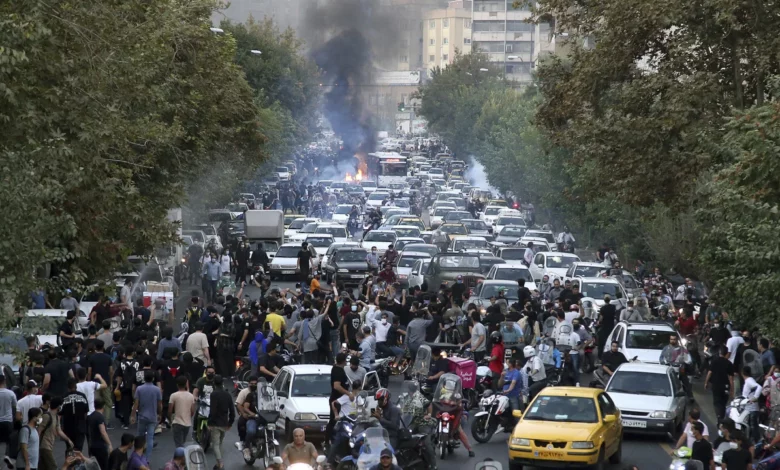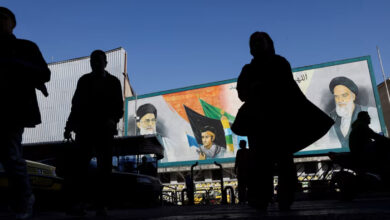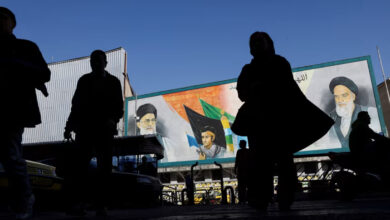
Amini, a 22-year-old Kurdish-Iranian woman, died last September after being detained by the regime’s infamous morality police and taken to a “re-education center,” allegedly for not abiding by the country’s conservative dress code.
Protests sparked by Amini’s death, the largest Iran has witnessed in years, were met with a brutal crackdown by Iran’s security forces.
More than 300 people were killed in the protests, including more than 40 children, the UN said in November last year. US-based Human Rights Activists News Agency (HRANA) in January placed the number at more than 500, including 70 children.
Thousands were arrested during months of protests across the country, the UN said in a report in June, citing research released last year by their Human Rights Committee.
Iran executed seven protesters for their involvement in the unrest, according to the UN’s Office of the High Commissioner for Human Rights.
A group of volunteer lawyers who defend rights activists alleged in a post on X, the social media platform formerly known as Twitter, that Iran arrested the father of one of the executed protesters and the family’s legal counsel on Tuesday.
CNN has reached out to the Iranian Foreign Ministry for comment.
In a separate case, Shermin Habibi, the wife of Fereydoon Mahmoodi, a protester killed by security forces during the demonstrations, was arrested and transported to an undisclosed location on Tuesday, according to a report from HRANA.
Across 10 provinces, families of 33 people killed during the protests have been subjected to “human rights violations” in recent months, and the families of two people executed in connection with the protests were harassed and intimidated, Amnesty International said in a report this week.
Meanwhile, Bidarzani, an independent women’s rights group, alleges in social media posts that 11 women’s rights activists and one man were arrested in Gilan province over the last week.
State-affiliated media said 12 people were arrested for “preparing unrest and insecurity” in the province, which is northwest of Tehran on the Caspian Sea. Prosecutors in Gilan refused to provide details on which security entity was behind the arrests, according to Bidarzani.
“Iranian authorities are using their go-to playbook of putting maximum pressure on peaceful dissidents ahead of the anniversary of Mahsa Amini’s death,” a senior Iran researcher at Human Rights Watch, Tara Sepehri Far said in a press release.
“The arbitrary arrests of a dozen activists are aimed at suppressing popular discontent with ongoing impunity and rights violations.”
It is unclear if more protests are planned to coincide with the anniversary of the death of Mahsa Amini, who had been arrested by Iran’s morality police for not wearing her hijab correctly.
Ten months after her death, Iran’s morality police resumed headscarf patrols and now Iranian authorities are considering a draconian new bill on hijab-wearing that experts say would enshrine unprecedentedly harsh punitive measures into law.
The 70-article draft law sets out a range of proposals, including much longer prison terms for women who refuse to wear the veil, stiff new penalties for celebrities and businesses who flout the rules, and the use of artificial intelligence to identify women in breach of the dress code.




